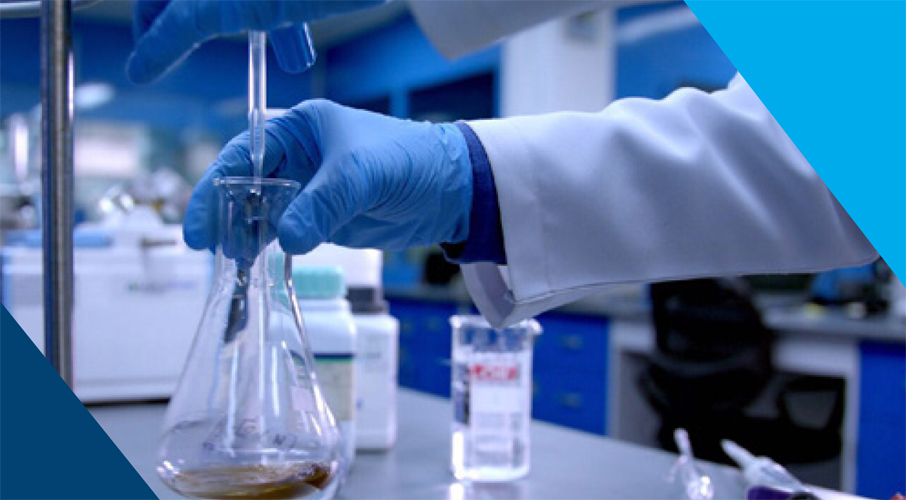Comprehensive Water Testing Services Orlando for Your Home's Requirements
Comprehensive Water Testing Services Orlando for Your Home's Requirements
Blog Article
Learn Exactly How Water Screening Can Spot Impurities and Safeguard Your Family members's Health
Recognizing the relevance of water screening is crucial for securing your family members's health and wellness, as our water supply can nurture hidden risks. By exploring the mechanics of water testing, one can uncover the invisible threats lurking in relatively beautiful water sources.
Significance of Water Testing
Identifying the vital role water plays in maintaining life, the relevance of water testing can not be overstated. Making sure that water is totally free from unsafe compounds is critical for keeping healthy communities and environments. Water Tesing Services Tampa.
Water screening offers as a positive step to recognize potential hazards that might jeopardize water quality. Through methodical analysis, it helps find physical, chemical, and biological criteria that can position risks to human health and wellness. Regular screening enables for the very early detection of problems, facilitating prompt interventions to avoid prevalent contamination and associated health issue.
Additionally, water testing supports regulatory conformity, guaranteeing that water carriers meet well established safety standards and standards established by governmental authorities. It fosters openness and accountability, building public rely on the water supply system. Moreover, testing gives useful information that educates water administration techniques, enabling lasting usage and preservation of this precious resource.
Essentially, water screening is a crucial tool that safeguards public health and wellness, guarantees governing adherence, and advertises the lasting administration of water resources. Its importance in shielding both areas and people can not be taken too lightly.
Common Water Contaminants
Amongst the numerous aspects that can jeopardize water high quality, common water contaminants consist of a range of physical, chemical, and organic substances that present substantial risks to human wellness and the environment. Physical pollutants frequently include sediments or organic materials put on hold in water, which can influence quality and taste.
Organic contaminants, mostly bacteria, viruses, and protozoa, arise from animal and human waste going into water supply. Virus such as E. coli, Giardia, and Cryptosporidium are infamous for creating gastrointestinal diseases and can be specifically hazardous to young children, the elderly, and those with jeopardized immune systems. Nitrites and nitrates, frequently stemming from fertilizers, pose another wellness risk, particularly to babies, potentially leading to problems like methemoglobinemia or "blue infant syndrome."
Additionally, emerging contaminants, consisting of pharmaceuticals and personal care items, have actually raised worries as a result of their persistence and unidentified lasting impacts. Comprehending these impurities is critical for applying effective water therapy approaches and ensuring secure drinking water.
Exactly How Water Screening Functions
Comprehending the spectrum of contaminants in water highlights the relevance of efficient testing methods to guard public health. Water testing is an organized procedure developed to recognize and measure different pollutants that might posture threats to human health. This entails a series of logical treatments that spot impurities such as bacteria, heavy steels, organic chemicals, and various other contaminants. The testing procedure usually begins with example collection from the water source, guaranteeing that samples are representative and unpolluted throughout the collection process.
Once examples are collected, they undertake laboratory analysis using various methods. Chemical screening commonly includes spectrometry or chromatography, both of which can determine and gauge details chemical compounds. For microbiological testing, techniques such as membrane layer filtering or enzyme substrate tests are made use of to find pathogenic microbes. Furthermore, physical attributes like turbidity, ph, and shade are evaluated to give understanding right into the overall top quality of the water.
The specific methodologies employed in water screening depend upon the specific impurities of issue and the water's planned use. By constantly applying these extensive screening procedures, scientists and public wellness authorities can ensure the safety and high quality of water, thus safeguarding neighborhoods from potential health risks.
Choosing the Right Examination
How does one figure out one of the most ideal water test for their demands? Choosing the right test includes understanding both the particular features of the water resource and the prospective contaminants that might exist. The primary step is examining the water resource-- be it metropolitan, well, or surface water-- as each has distinct risks. Municipal water could call for screening for disinfectant by-products, while well water might require testing for nitrates, microorganisms, and hefty metals.
Next, think about environmental variables and recent occasions. Neighboring agricultural tasks might demand testing for herbicides and pesticides, whereas industrial areas could need look for chemical pollutants. Furthermore, any kind of adjustments in water taste, look, or odor must motivate details testing her explanation for common impurities like lead, chlorine, or organic pathogens.
Specialist water testing services use extensive packages that target a large range of prospective pollutants. These kits typically line up with criteria set by the Epa (EPA) or neighborhood health divisions. For an extra tailored method, seeking advice from with a water high quality expert can offer understandings right into which particular examinations are necessary based on local problems and individual health and wellness requirements, guaranteeing the defense of your household's health.

Maintaining Water Safety And Security

Along with screening, appropriate maintenance of water supply plays an essential duty. This consists of evaluating and servicing pipes systems, tank, and septic tanks to stop leakages or backflow that might present pollutants - Water Testing Service. Using water filtration systems developed to resolve certain neighborhood problems can additionally safeguard against contaminations, providing an added layer of security
Public understanding and education are equally crucial in maintaining water safety. Communities must be educated concerning possible threats linked with local water resources and the necessary actions to reduce them. Urging public involvement in water safety initiatives fosters a cumulative obligation that boosts general performance.
Ultimately, a detailed approach that integrates normal testing, system maintenance, and neighborhood involvement is moved here necessary in safeguarding water top quality. By doing so, households can be ensured of tidy and safe water, securing their health and wellness and well-being.

Final Thought
Normal water screening is important for recognizing contaminants such as bacteria, hefty metals, and chemicals that pose health threats. By assessing water samples, hidden threats can be discovered, guaranteeing the stipulation of secure drinking water. This proactive method helps develop a much healthier setting and facilitates educated decision-making concerning water safety. Choosing proper testing methods and keeping alertness in water quality are essential steps in securing public health and wellness and ensuring the wellness of all family members.
Understanding the importance of water testing is important for safeguarding your household's wellness, as our water supply can harbor hidden threats.Water testing serves as a positive step to identify prospective dangers that might jeopardize water top quality.In addition, water screening supports regulative compliance, making certain that water service providers meet well-known safety requirements and standards established by governmental authorities. Metropolitan water could require screening for disinfectant by-products, while well water may require testing for nitrates, microorganisms, and heavy metals.
Routine water testing is a vital element in keeping the quality of Click This Link water resources, enabling prompt interventions prior to pollutants reach harmful levels.
Report this page